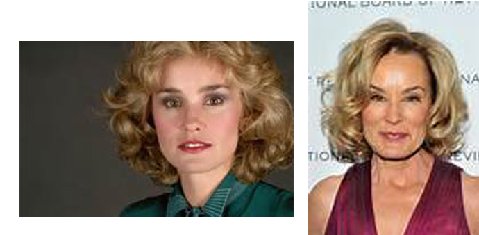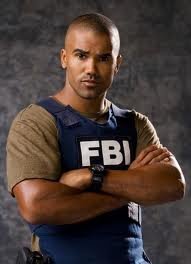Andrew Jackson (March 15, 1767 – June 8, 1845) was an American lawyer, general, and statesman who served as the seventh president of the United States from 1829 to 1837. Before being elected to the presidency, Jackson gained fame as a general in the United States Army and served in both houses of the U.S. Congress. An expansionist president, Jackson sought to advance the rights of the "common man" against a "corrupt aristocracy" and to preserve the Union.
Born in the colonial Carolinas in the decade before the American Revolutionary War, Jackson became a frontier lawyer and married Rachel Donelson Robards. He served briefly in the United States House of Representatives and the United States Senate, representing Tennessee. After resigning, he served as a justice on the Tennessee Supreme Court from 1798 until 1804.
Jackson purchased a property later known as The Hermitage, and became a wealthy, slave owning planter. In 1801, he was appointed colonel of the Tennessee militia and was elected its commander the following year.
He led troops during the Creek War of 1813–1814, winning the Battle of Horseshoe Bend. The subsequent Treaty of Fort Jackson required the Creek surrender of vast lands in present-day Alabama and Georgia. In the concurrent war against the British, Jackson's victory in 1815 at the Battle of New Orleans made him a national hero. Jackson then led U.S. forces in the First Seminole War, which led to the annexation of Florida from Spain. Jackson briefly served as Florida's first territorial governor before returning to the Senate. He ran for president in 1824, winning a plurality of the popular and electoral vote. As no candidate won an electoral majority, the House of Representatives elected John Quincy Adams in a contingent election. In reaction to the alleged "corrupt bargain" between Adams and Henry Clay and the ambitious agenda of President Adams, Jackson's supporters founded the Democratic Party.
Jackson ran again in 1828, defeating Adams in a landslide. Jackson faced the threat of secession by South Carolina over what opponents called the "Tariff of Abominations". The crisis was defused when the tariff was amended, and Jackson threatened the use of military force if South Carolina attempted to secede. In Congress, Henry Clay led the effort to reauthorize the Second Bank of the United States. Jackson, regarding the Bank as a corrupt institution that benefited the wealthy at the expense of ordinary Americans, vetoed the renewal of its charter. After a lengthy struggle, Jackson and his allies thoroughly dismantled the Bank. In 1835, Jackson became the only president to completely pay off the national debt, fulfilling a longtime goal. While Jackson pursued numerous reforms designed to eliminate waste and corruption, his presidency marked the beginning of the ascendancy of the party "spoils system" in American politics. In 1830, Jackson signed the Indian Removal Act, which forcibly removed most members of the major tribes of the Southeast to Indian Territory; these removals were subsequently known as the Trail of Tears. The relocation process dispossessed these nations of their land and resulted in widespread death and disease. Jackson opposed the abolitionist movement, which grew stronger in his second term. In foreign affairs, Jackson's administration concluded a "most favored nation" treaty with the United Kingdom, settled claims of damages against France from the Napoleonic Wars, and recognized the Republic of Texas. In January 1835, he survived the first assassination attempt on a sitting president.
On June 8, 1845, President Andrew Jackson, the country’s seventh Commander in Chief, passed away from unknown complications. Thousands gathered at his Tennessee home, The Hermitage, to pay their respects, but it was his foul-mouthed pet parrot that stole the show. Jackson's African grey parrot, named Poll, began uttering obscenities during the funeral and became so disruptive that it had to be escorted away from the proceedings. We don’t know what happened to Poll after his indecent outbursts, but we do know that Jackson and his foul-mouthed bird will forever live in infamy.
Here's a creamy version of carrot cake we bet you won't be able to resist. Our Crumbly Carrot Cake Bars taste like the perfect combination of carrot cake and cheesecake. They're just as great for serving on Easter Sunday as they are for bringing along to any friendly potluck.
- 2 1/2 cups all-purpose flour
- 1 1/2 cups old-fashioned oats
- 1/2 cup light brown sugar
- 1 1/4 cups granulated sugar, divided
- 1/2 teaspoon baking soda
- 1 1/4 teaspoons ground cinnamon
- 2 sticks butter, softened
- 1 1/2 cups grated carrots (2 to 3 carrots)
- 3/4 cup chopped walnuts
- 2 teaspoons vanilla extract, divided
- 2 (8-ounce) packages cream cheese, softened
- 2 eggs
- Preheat oven to 350º. Coat a 9- x 13-inch baking dish with cooking spray.
- In a large bowl, combine flour, oats, brown sugar, 1/2 cup granulated sugar, the baking soda, cinnamon, and butter; beat with an electric mixer until it crumbles. Stir in carrots, walnuts, and 1 teaspoon vanilla; mix well. Reserve 2 cups of the mixture; press remaining mixture into bottom of baking dish.
- Bake 20 minutes. Meanwhile, in a large bowl, beat cream cheese and remaining 3/4 cup sugar until smooth. Add eggs and remaining teaspoon vanilla; mix well.
- Spread cream cheese mixture over crust. Sprinkle reserve crumbs on top.
- Bake 25 to 30 minutes, or until cheesecake layer is set. Let cool, then refrigerate at least 3 hours or until chilled. Slice into bars and serve.
1941 – Ryan O'Neal, American actor













No comments:
Post a Comment